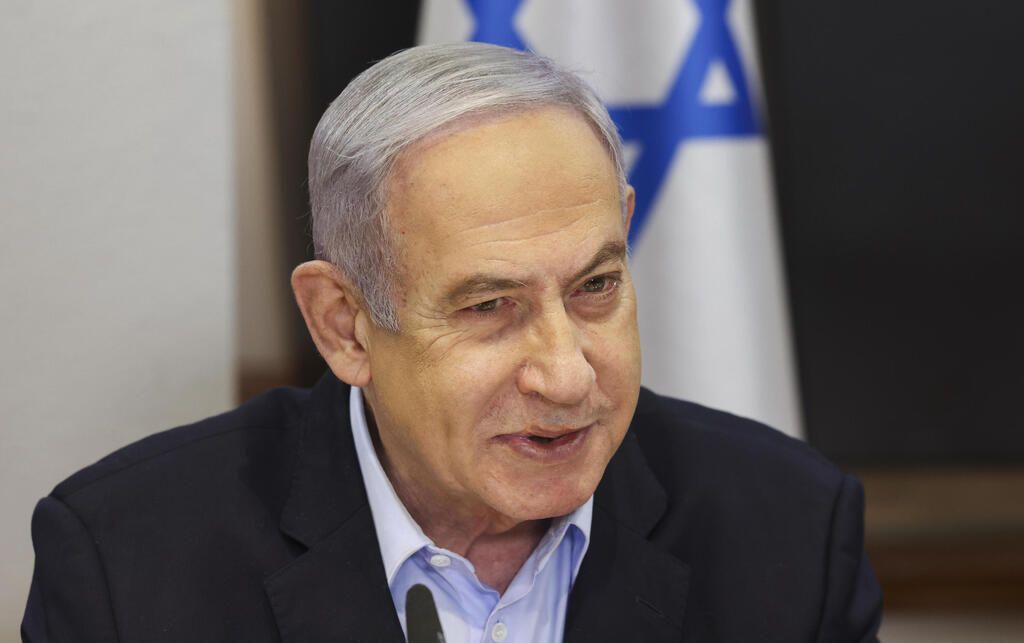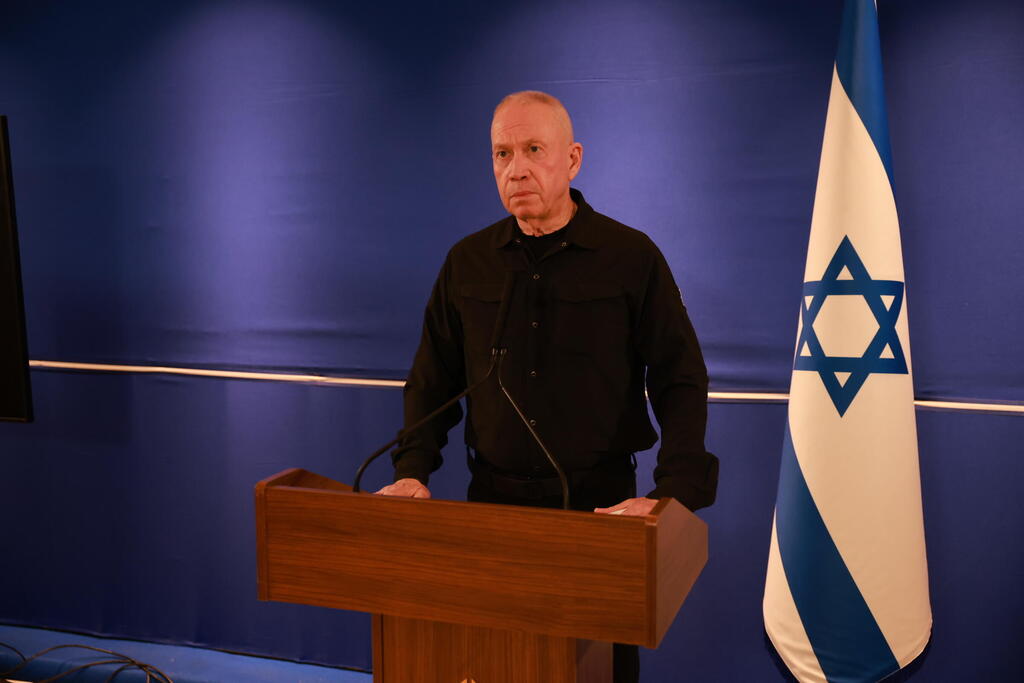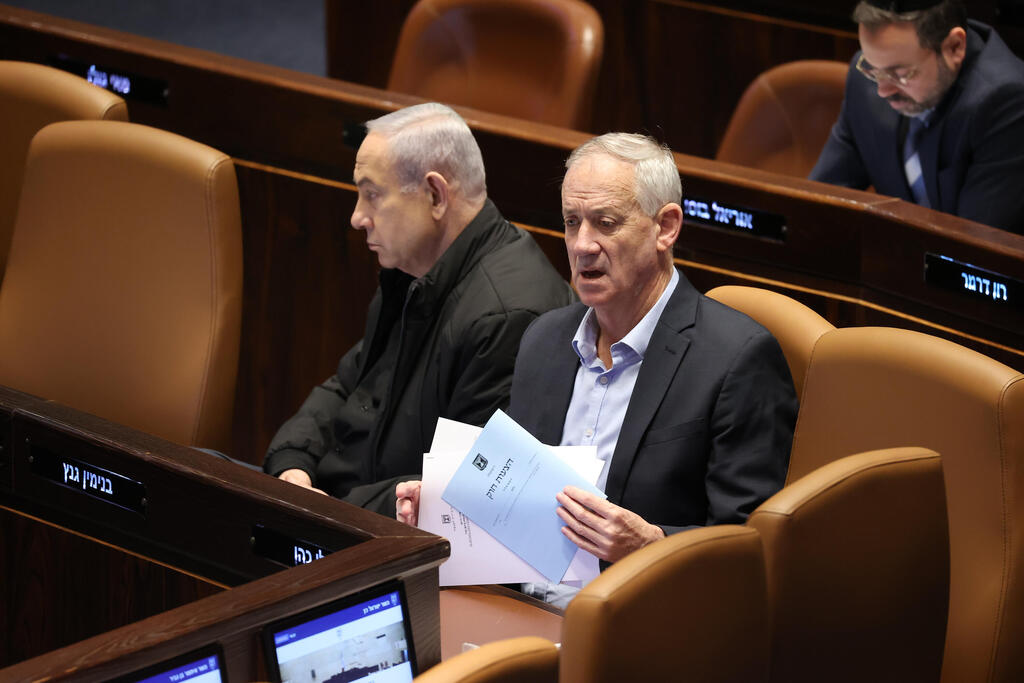On Monday evening, Defense Minister Yoav Gallant held a Tel Aviv press conference in which he spoke of the difference of opinion within the war cabinet as it pertains to the hostages still trapped in Gaza, going as far as criticizing Prime Minister Benjamin by saying that "political indecision maybe inadvertently affect military action".
Read more:
Channel 13 news report that IDF Chief of Staff, Herzi Halevy, shares Gallant's point of view. "We face an erosion of all the accomplishments we've achieved in this war," Halevi reportedly said in internal discussions. "Since there's no post-war strategy. This means we might have to reenter places we've already cleared."
Focusing on the issue of the hostages, Gallant said: "In the past 100 days, we've resumed our enormous efforts to secure the release of our hostages. We've been able to bring back 110 of them, we will also bring home the rest, no matter the cost. The cruel enemy we face only understands force. Only military pressure will bring about fulfillment of the war's objectives. No one will take our call without it. It's only from a position of strength that their release can be secured. Should there be a ceasefire, they will languish in Hamas captivity for years to come."
Regarding the military maneuvering itself, Gallant admitted that operations in northern Gaza have concluded, and the south will soon follow. "In front of the cabinet, along with the Chief of Staff, I've presented the stage of intensive maneuvering three months ago, and that stage has concluded in the northern section of Gaza. We will soon do the same in southern Gaza, which will be followed by moving on to the next stage."
Referring to "the two senior partners in this unity government", namely Prime Minister Netanyahu and Cabinet Minister Benny Gantz, Gallant said: "This is a time for both unity and compromise. This emergency government is a prerequisite to winning the war. Without it, accomplishments will be under contention, and Hamas will stand as the only victor. It is incumbent upon us to replicate the unity we see in our warriors on the battlefield as a national unity led by the state.
"2024 will stand as a year of conflict and strife, but also a year of triumph. At the war's conclusion there shall be no military threat to Israel, Hamas will be rendered ineffective as a military force in the Gaza strip and the IDF will have full autonomy. Gaza is a home for Palestinians, therefore Palestinians will govern it in the future."
Placing the ball in Netanyahu's court, Gallant urged swift government resolutions. "The end of the military campaign must be accompanied by political action, for it is what leads the military accomplishments, and political indecision could harm military progress. I've laid out a plan to the cabinet, and the government must discuss it and determine the war's final destination."
Following the death of Barak and Mira Ayalon from Hezbollah fire on Sunday, Ynet asked Gallant whether a political solution in the northern border still stands as an attainable goal. "We prefer an agreement," Gallane replied. "But the hourglass has been flipped over. Our pilots are ready for anything. This will be solved in one of two ways. Either we agree on a settlement, or conversely, an IDF operation that will bring about the safe return of our northern residents into their homes. We prefer a settlement, but will act militarily if we must. Hezbollah is paying through the nose but it isn't without cost."
After Gallant's words yesterday about the need to form an agreement regarding the movement of Palestinian day laborers to Israel, he was asked if Monday's attack in the city of Ra'anana has affected his position. "The military pressure we're exerting in the West Bank, aside our success in Gaza, evokes the will to perform attacks against us. This can be resolved by creating a valve through which day laborers can move in and out to put food in their table. It's important to understand that throughout the years, Jews and Arabs have coexisted on both sides of River Jordan."
Assistant non Grata
Tensions between Netanyahu and Gallant have escalated on Saturday, when Gallant abandoned the government meeting after National Security Council head, Tzahi Hanegbi, declined entrance to Gallant's office director, Shahar Katz. According to those privy to the proceedings, Gallant ran a bit late to the meeting and eventually showed up accompanied by Katz.
At that point, Hanegbi made it clear no assistants are allowed in the meeting, to which Gallant retorted back "You're an assistant too", and made it clear to him that as the only War Cabinet Minister with operational authority and that his office director implements all decisions on the civilian side, and thus he must stay.
Unfortunately, the two came to a standstill, at which point Gallant abandoned the meeting, saying: "You need to stop interrupting my work. You're hurting the operational arm that makes decisions." Onlookers admitted the were mortified by the confrontation, which felt vindictive and petty to them.
Not removed, replenished
As political officials quarrel, IDF has concurrently decided to remove the 36th Division from Gaza, which counts the Golani Brigade among its ranks. As it now stands, there are three remaining divisions in Gaza, not counting Special Forces units still operating throughout. The 98th division in currently deployed in Khan Younis, the 99th division secures the Netzarim corridor, much closer to the Egyptian border, and the 162nd division that is in charge of executing targeted raids in Gaza's northern section.
However, IDF has made it clear the 36th division in not being retired, but rather replenished, as they will work on increasing readiness for further escalations. They've additionally made it clear events are dynamic and ever-changing, necessitating a continual evolution to the approach. Once this transitional period is concluded, IDF command will decide whether to redeploy forces that have been extracted, depending on how events unfold both in Gaza and in Lebanon.
IDF Chief of Staff visits Engineering Corps
(Video: IDF Spokesperson's Unit)
This move stands in special significance, seeing as the 36th division was the second to enter Gaza upon the commencement of the ground offensive, following the 162nd division, who were the first to enter the enclave on foot.
IDF Chief of Staff, Herzi Halevy, visited troops from the Combat Engineering Corps, where he said: "This war states a very clear message to the entire region: The state of Israel wants to live here and move forward, but when threats emanate to this extent, the entire country and the entire Israeli population drops everything and ask what they can do, even if it places them in mortal danger.
"Anyone who messes with us will receive an answer loud and clear. That's what happened in the past 100 days, and this is how things will be until all objectives are fulfilled and the war is won. Tonight we will deploy forces in Gaza to fight the terrorists, deploy forces in the West Bank to continue taking on terror infrastructure and will also deploy forces on the Lebanese border to destroy their terrorist infrastructure."







